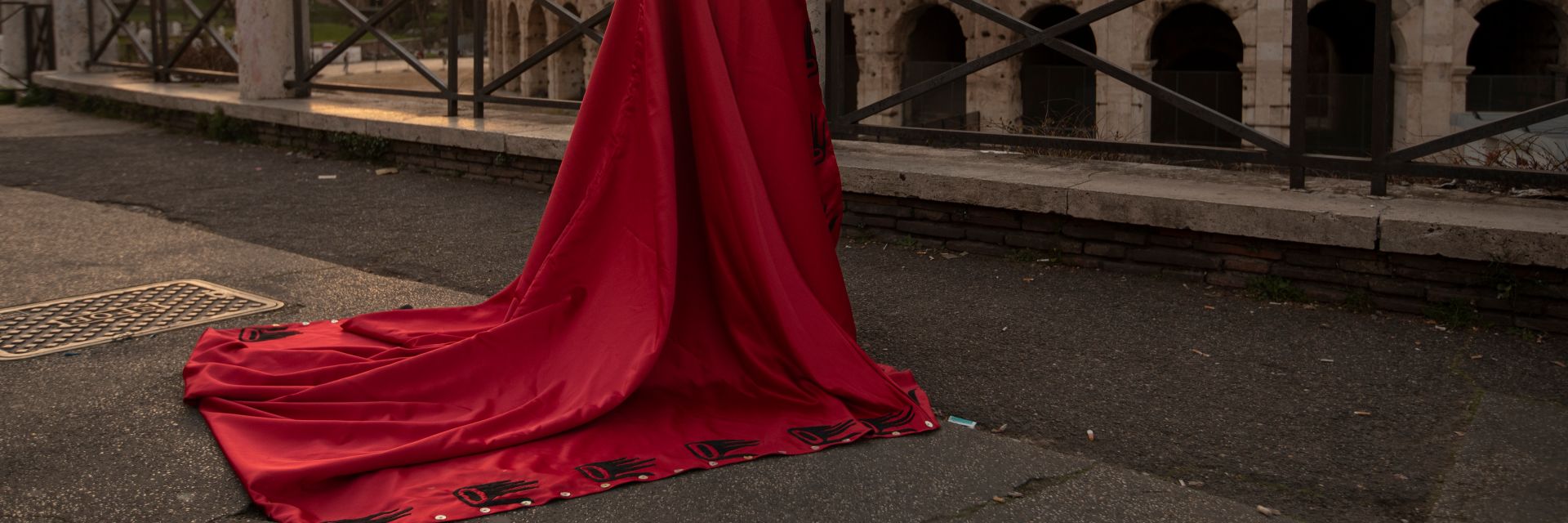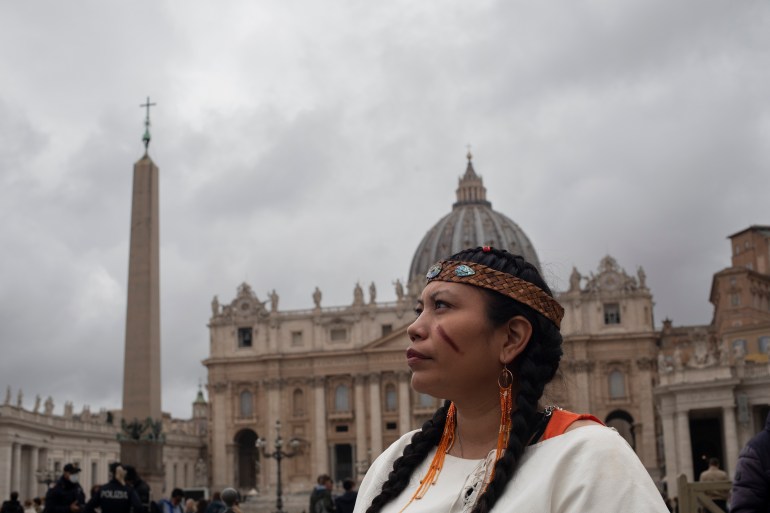A warrior for Indigenous women and girls

As the sun set over Rome, Lorelei Williams calmly observed the steady stream of tourists who flocked into the Colosseum, where warriors once fought to the death before tens of thousands of spectators.
Wrapped in a blood-red silk cape and with her black hair neatly braided, she was in Italy to witness a historic event - one she had come all the way from Canada to be part of.
Lorelei is Salish/Coast Salish from the Skatin Nations/Sts’Ailes, near Vancouver, British Columbia. When a delegation of First Nations, Inuit and Metis representatives were invited to Rome to meet with Pope Francis, Lorelei knew she had to be there, too. So she took time off work and paid for the trip herself. For Lorelei, it was a way to honour her late parents.
The delegates were there to ask the pope to apologise for the Catholic Church’s role in Canada’s residential schools - the federally funded, church-run institutions that operated from the late 1800s until 1996 with the goal of forcibly assimilating Indigenous children.
More than 150,000 Indigenous children from across Canada were torn from their families and communities and forced to attend the schools where physical, sexual, emotional and spiritual abuse was rife.

Lorelei’s parents were among them.
Thousands of children died at the schools, and while Lorelei’s parents survived, she believes the trauma her mother endured at her residential school eventually killed her.
That is why being in Rome was so important to her.
“This is something I needed to see with my own eyes,” she said, softly. “For the children, for the missing and murdered and for my parents, I just felt like I needed to be here.”